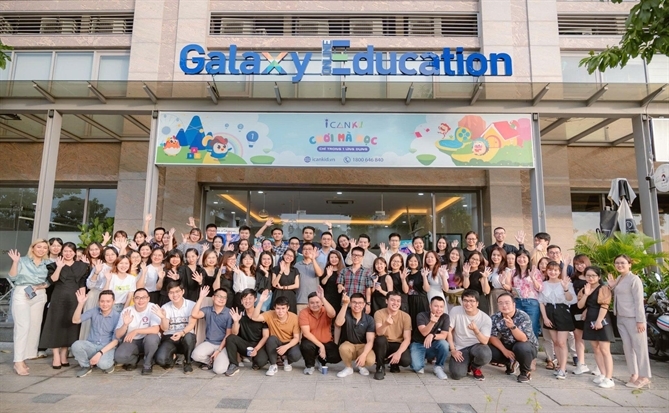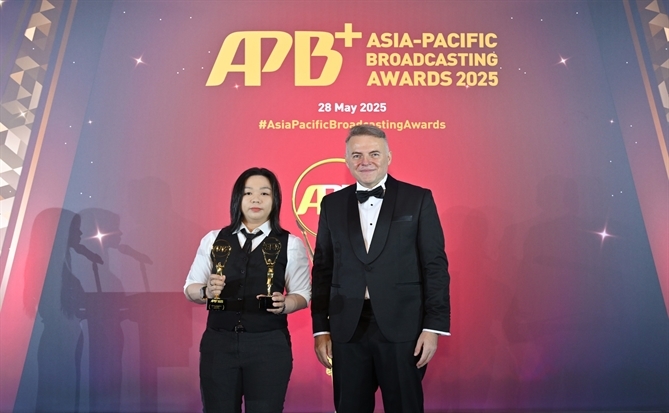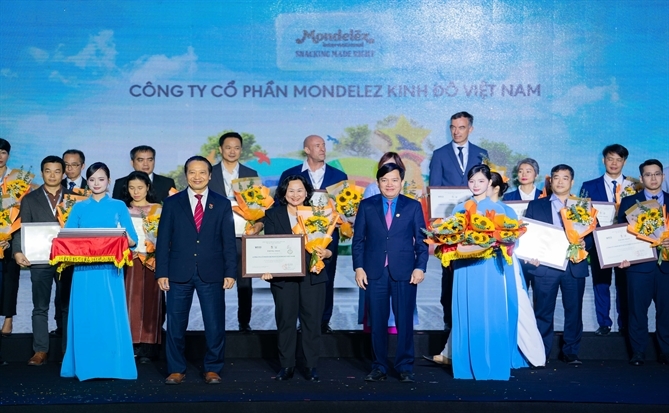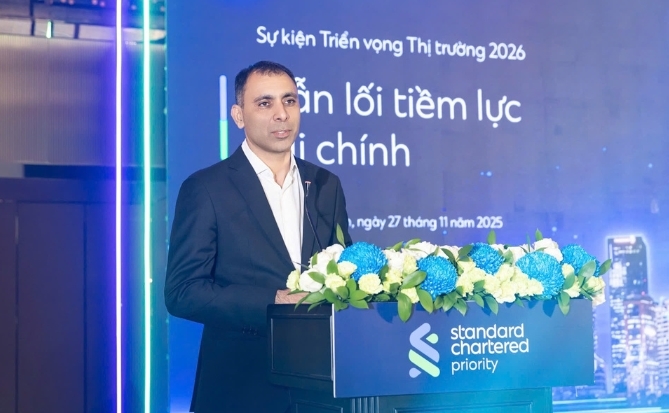Samsung says Galaxy factories in Vietnam running 'at full capacity': Nikkei Asian Review
_20173641.jpg)
Customers and media representatives try out Galaxy S20 phones at a Samsung showroom in Ho Chi Minh City.
The South Korean technology group announced the flagship Galaxy S20 phone at an event held in Ho Chi Minh City, Vietnam's commercial capital.
The new devices are assembled at factories located in Thai Nguyen and Bac Ninh, two provinces near Hanoi, that together ship half of all Galaxy phones worldwide.
"Samsung Vietnam's operations are in perfect condition," Nguyen Tri Thong, corporate marketing director at local smartphone unit Samsung Vina Electronics, told the Nikkei Asian Review on the sidelines of the event.
"One of every two Samsung smartphones shipped globally is from Vietnam-based facilities," Thong said.
"We are now running at full capacity," he added without elaborating.
Samsung announced the Galaxy S20 in the U.S. on Feb. 12. The phone remains set for release on March 6, which suggests that Samsung has enough capacity to produce the high-end model at Vietnamese factories for both local and international markets. International Data Corp., a U.S. research firm, estimates Samsung shipped about 296 million phones globally in 2019.
Thong said Samsung's latest device has been ready for delivery for a while, as the company always has a clear production schedule.
Samsung's confidence contrasts with rivals' struggle to fully resume their production because they largely depend on China-based assembly. Apple said on Tuesday it does not expect to meet its revenue forecast for the three months through March owing to the coronavirus outbreak.
While Samsung says its operations in Vietnam have returned to normal, there are concerns over logistics at Chinese border as the Korean company's factories source some parts from suppliers in China.
Earlier this month, hundreds of containers of imported products, including parts and materials for electronics, were held up at Huu Nghi in Lang Son Province, one of the three busiest checkpoints on the border.
.jpg?source=nar-cms) |
| Samsung Vina Electronics CEO Suh Kyung-wook unveiled the Galaxy S20 series in Ho Chi Minh City on Feb. 19. |
Samsung had planned to fly electronic components for Galaxy phones from China to Vietnam after China announced that border crossings would be closed to halt the spread of the virus.
Local media report that the three busiest border gates had been re-opened for cargo shipments as of Feb. 8, while other gates will remain closed until the end of February. Samsung's cargo container shipments across the border have resumed, a source at the company's Vietnam unit told Nikkei on Tuesday.
A Nikkei report in 2018 showed that Samsung's dependence on Chinese suppliers was relatively low. Presumably, this is still contributing to Samsung's comparably smooth production in Vietnam.
Dependence on Chinese suppliers is likely to further fall; the Korean maker has announced in October it would end smartphone production in China.
Another concern for Samsung in Vietnam is a possible labor shortage. Earlier this month, multiple workers at Samsung's factories told Nikkei that hundreds of colleagues were staying at home at the request of the company. Those employees had returned from their hometowns near the border with China and said they had direct contact with Chinese nationals during Tet, the Vietnamese Lunar New Year holiday, which ended Jan. 30.
Vietnam had 16 confirmed cases of the new coronavirus as of Thursday morning, but 14 of the patients have recovered according to the Ministry of Health. In addition, 23 people suspected of infection were isolated, and more than 1,500 people were under surveillance. Hanoi has also quarantined the Son Loi a commune of around 10,000 residents for 24 days, starting on Feb 11.
Meanwhile, Vietnamese authorities have shut down all schools nationwide for another two weeks until Feb. 23. This affects around 18 million students at all levels, including the children of Samsung employees.
Many cities and provinces, such as Ho Chi Minh City, Dong Nai, and Vinh Phuc, have decided to extend the closure until the end of February as a precaution against infection.
Thong declined to comment on the impact of the school closures and potential labor shortage, but said that Samsung always has a plan B and plan C to prevent interruptions in its operations.
Thong said Samsung is not worried about local factories' operation as it can adjust to some business environment changes by monitoring market conditions, including its suppliers' activities.
"The outbreak of the coronavirus did create challenges to many businesses globally. However, we have been mobilizing our backup plans in order to maintain our position," Thong said. "We don't see any serious issues in our supply chain at the moment," he said without giving details.
Thong said was "encouraged by the positive market reaction to the Galaxy S20 in Vietnam."
According to Nguyen Viet Anh, deputy CEO of electronics vendor FPT Retail, the company saw a "strong increase in sales of smartphones and laptops during the Tet holiday and following weeks compared to same period last year."
"Demand skyrocketed because parents rushed to buy mobile devices and laptops for their kids to study online and play at home," Anh said.
Besides being a Samsung manufacturing hub, Vietnam is also one of its most important markets, thanks to a growing population of more than 95 million with a median age of about 30. The country's smartphone market more than doubled to 16.4 million units in 2019 from 6.3 million in 2014, according to Euromonitor International, a U.K.-based market research company. Samsung led with a 25% market share in 2019.
The new Galaxy S20 is set to hit local stores on March 6 with a price ranging from VND21.5 million to VND30 million ($925 to $1,290).
Source: Nikkei Asian Review

 TIẾNG VIỆT
TIẾNG VIỆT 
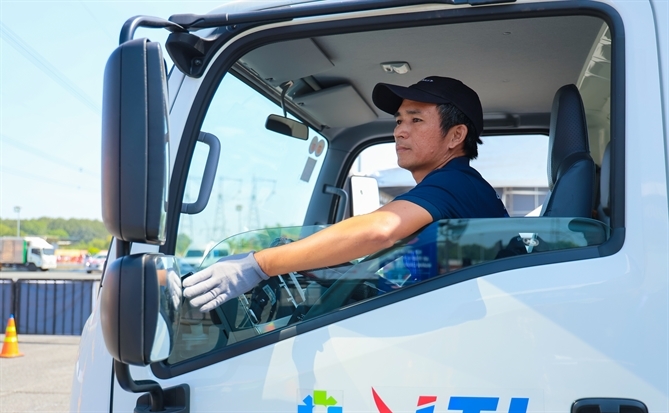
_131447820.png)
